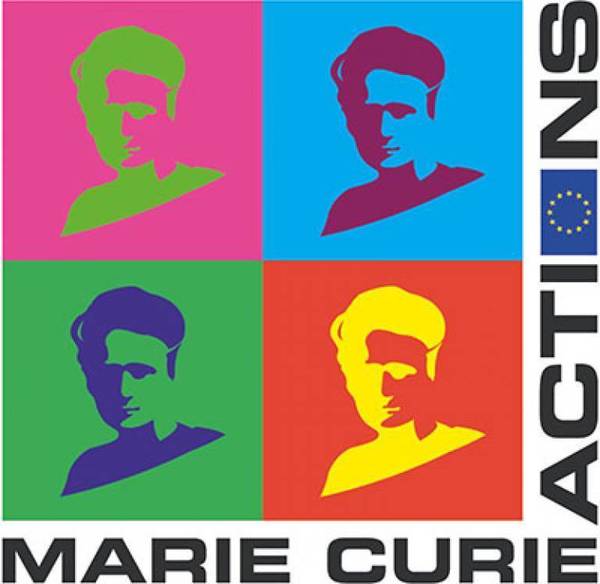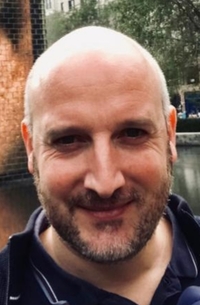

Matteo Favaretto joined the Center for Italian Studies and Department of Romance Languages and Literatures in Fall 2019 as the recipient of a Marie Skłodowska-Curie Fellowship from the European Commission. The fellowship supports a two-year visit to Notre Dame for his research project on early Italian prosimetra, or works combining prose and verse.
Favaretto specializes in medieval and Renaissance Italian literature. Following his graduation with a bachelor’s degree in Classics from the University of Padua, he obtained two PhDs, one in Classical Philology and Italian Medieval Literature at Ca’ Foscari University in 2007, the other in Italian Literature at Royal Holloway, University of London in 2013. For the former he produced a critical edition of the early Italian translations in verse of Terence’s comedies; the latter focussed on the comic aspects of Machiavelli’s political and historical works.
We recently sat down with Matteo to learn a little more about him and the work he will be doing at Notre Dame.
For those who may not be familiar, what is a Marie Curie Fellowship?
Marie Skłodowska-Curie Individual fellowships are promoted by the European Union and aim to foster the career development of researchers in all scientific disciplines through international mobility. There are two types: European Fellowships held in EU Member States for a period of 12 to 24 months, and Global Fellowships based on a secondment to a third country (from 12 to 24 months) and a mandatory 12-month return period to a European host institution.
I applied for and received a global fellowship. Thus, I will spend the first two years here at the University of Notre Dame, and the last year at Ca’ Foscari University of Venice.
Tell us a little about your academic background, your previous work and how you decided on your research subject?
While studying for my Bachelor’s degree in Classics at the University of Padua, I developed a strong interest in the history of the Italian language attending the classes of Prof. Pier Vincenzo Mengaldo. Whereas for my BA thesis I analyzed the short tales by the Neapolitan author Salvatore Di Giacomo (1860-1934), I subsequently embarked on a PhD in Italian Literature at Ca’ Foscari University editing the earliest translations in verse of Terence’s plays. This gave me the opportunity to carry out research on a different period of Italian literature acquiring new linguistic and philological competencies. The completion of a second PhD at Royal Holloway, University of London, which focused on a critical investigation of the comic aspects of Machiavelli’s political and historical works, allowed me to enhance my international profile as a scholar in Italian Renaissance literature. It is within this research field that the new project was born. With it, I aim to draw up an inventory of the prosimetra written in the Italian vernacular between 1250 and 1500.
What kind of work will you be doing at Notre Dame and why you chose to come here to do it?
During my stay at Notre Dame, I am going to investigate the definition of ‘prosimetrum’, generally understood as a textual form consisting of verse and prose, and its employment in the early centuries of the Italian literature. This critical phase of the research will be carried out alongside the creation of an inventory of the prosimetra written in the vernacular in the period under examination (1250-1500), which will eventually also be made available online. Each text included in the inventory will be described and examined according to specific criteria concerning its textual tradition, typology (lyric, pastoral, philosophical, etc.), meter, and subject-matter.
Since the earliest prosimetra written in the vernacular include Dante’s Vita Nova and Convivio, as well as Boccaccio’s Decameron and Ninfale d’Ameto, what better place could I have chosen to carry out my research than the department of Romance Languages and Literatures at Notre Dame, where eminent scholars in this field such as Prof. Zygmunt Barański and Theodore Cachey work? Another factor which influenced my choice is the presence of a very lively Center for Italian Studies and a well-equipped University Library.
Originally published by at italianstudies.nd.edu on January 20, 2020.